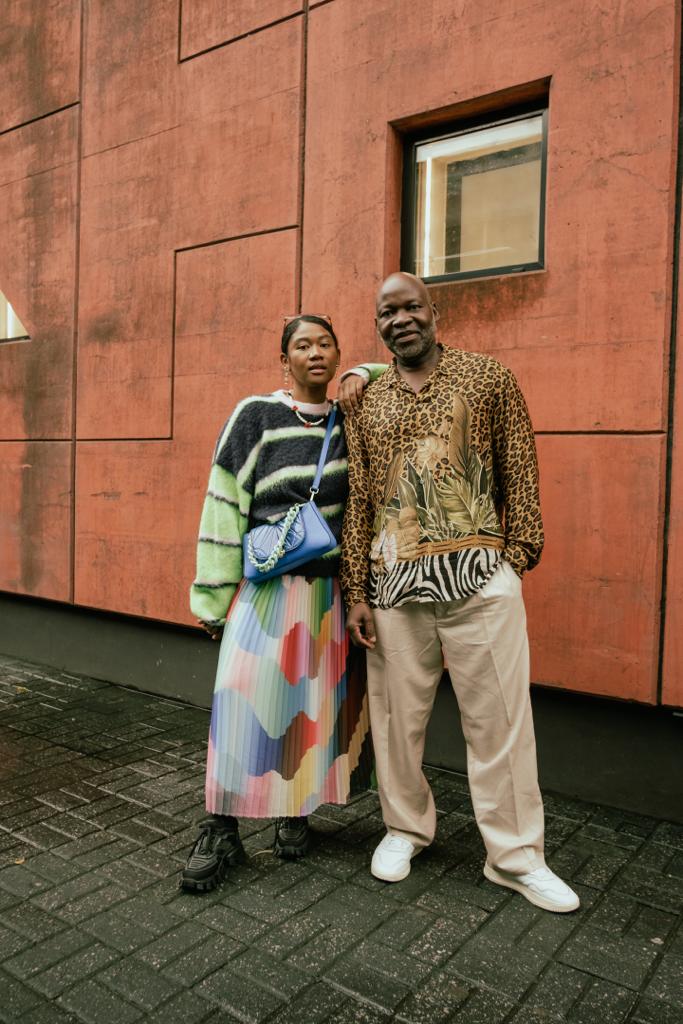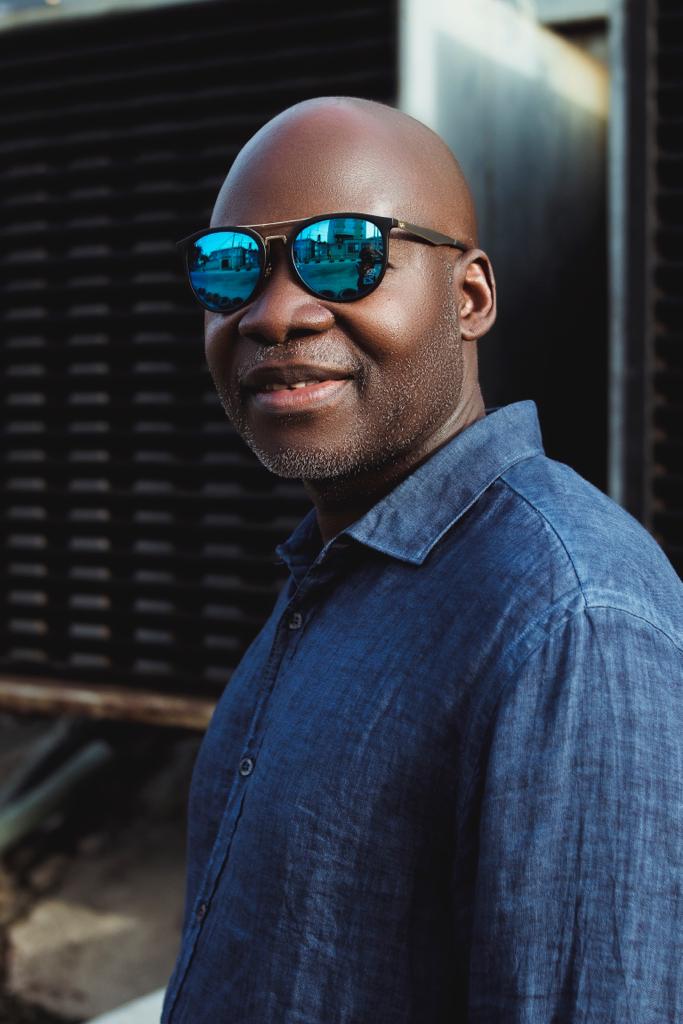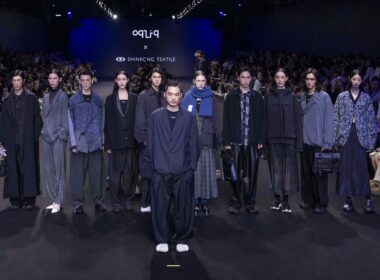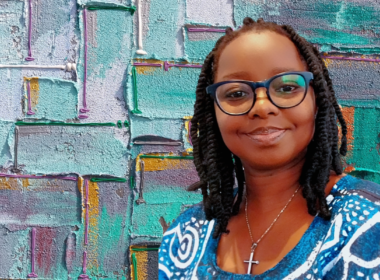An Exclusive Interview with David Alaba’s Father and Sister
In this soul-stirring interview, we sit down with the talented and rising star, Rose May Alaba, accompanied by her father and manager, George Alaba. As an Austrian-Nigerian artist making waves in the music industry, Rose May’s journey has been nothing short of remarkable. From her chart-topping hit “Love Me Right” to her foray into acting, she continues to capture hearts with her unique sound and captivating performances. Joined by her ever-supportive father, George, they share insights into their creative process, the power of family bonds, and the principles that have guided them along the way.
George, who is also the father of popular Austrian footballer David Alaba, has profound insights that remind us of the power of faith, mentorship, and family support in nurturing talent and fostering success. Through his genuine passion and dedication to his children, he exemplifies the true essence of a guiding force – shaping lives and careers with love, faith, and unwavering belief in their potential. As we delve into their story, may we find inspiration in the timeless wisdom he shares and embrace the beauty of building a legacy rooted in purpose and faith.
The reward of obedience to purpose is what helps you thrive
George Alaba

FAB: Do you still speak Yoruba?
George Alaba: Of course. Yes, I do. I speak with my younger brother once in a while.
Rose May: No, I do not. I wish I could speak, but I don’t.
FAB: You dropped out of school to pursue music. What motivated that decision?
George Alaba: While I was still in Nigeria in the 80s, I used to work professionally as a DJ, signed under Tabansi Records. We all moved together at the time with Felix, Liberty, Majek, who I was quite close with (Majek passed away a few years ago), Philip, Godwin, and all those who worked for Tabansi Records. Due to my involvement with music and the passion I had for it, when I got to Austria, I went on with studying, but after passing on with the university, I didn’t meet up… So, I decided to go in for real with music. I started there also as a DJ, and then I founded a group, which became a huge success. It motivated me to drop out of school because it was a bit difficult to combine academics with a music career. We were on the road most of the time, and we had to cope with classes during the day and studio sessions at night. I was motivated to choose one that I needed to follow. I left the study and stayed with music.

Staying True to Purpose – George Alaba’s Lessons on Success and Identity
FAB: Coming from a royal family, how did your parents take it?
George Alaba: Being a grownup, they knew that I knew what I needed to do. If you like something, you will always find a way to pursue it, no matter how much someone tries to hold you back. That’s how the whole thing went, and everyone accepted it. I am grateful that I followed that path.
FAB: How did your experience as the first black-skinned Austrian guard shape your own perception about representation and diversity in the European entertainment industry?
George Alaba: It is very interesting, but I can always give glory to God. When I look back at my past and my ways, I can see how blessed I am. Lately, I’ve come to realise that it has had a great impact on my life. How you present yourself determines how you will be accepted. It depends on your morals and the upbringing you have had. I think that helps me a lot to gain awareness, acceptance, and great friendships with people. If you want to be accepted, you have to make the move yourself. Then it will come back to you because that’s the way you want to be treated. Somehow it will always fall in line, and that’s what got me adapted and accepted into the culture.
In the army, I enjoyed it a lot. I was afraid in the beginning because it’s the military and anything can happen. You get drilled on everything. For a month, I was worried when they sent me a letter saying that I had to come. I called home and asked everyone to keep praying because we did not know exactly how it was going to be. It’s a real thing, just like when you go to NYSC here in Nigeria. After the basic training for two months, they post you to positions where you can fill them. It was there that I saw that there was no big deal behind it. I made a lot of friends and learned a lot about the cultural diversity of the people.
In there, you learn to be for one another. They train us to go into combat and to rely on our partners. To be able to capture or face an enemy, you need the other person. Outside the barracks, it’s something different, but in the barracks, that was the code we lived by.
FAB: Speaking of acceptance, Rose, what has been your experience as a biracial individual?
Rose May: To be honest, while growing up in Austria, because my mom is neither black nor white; she’s Philippine, and because I’m also dark-skinned, people saw me as dark-skinned. They don’t see me as someone who is not totally white or totally black. I grew up multi-cultural, and everywhere we lived, we had a lot of black people from different kinds of countries. There were Turkish people and people from Serbia. The district where we grew up was filled with different people from different cultures. There are always mean kids, but there was never a crazy experience for me where I had second thoughts about my own colour. In that sense, I think I was pretty lucky.
FAB: Is that why your music combines elements from various genres, making it a very unique sound that defies categorization? How do you blend some of these genres together?
Rose May Alaba: I grew up very diverse. I listened to a lot of artists growing up; I listened to R&B and soul, and my mom used to be a singer as well. Most of my mom’s side of the family grew up in Vienna with me, and most of them could sing and play instruments, so I grew up always singing different kinds of songs. That’s what probably inspired my R&B and soul background that I bring into my music today. And of course, my father’s roots in Afrobeat also have their influence. I have a lot of Nigerian friends, and we mostly listen to Afrobeats. We only attend parties where we know they will play Afrobeats because that’s the kind of music we vibe to. I’ve always wanted to combine different cultures that I’ve experienced into my music. Growing up in Vienna, Austria, also does something to you. You pick every influence you can get and infuse it into your music.
FAB: Born into a music-loving family, what was the pressure like growing up?
Rose May Alaba: It actually played out in my favour because my parents were then able to support my music. It’s not something you get paid for every month; it’s not like a stable job. They were able to see the passion that I have for it, and I couldn’t see myself doing something else. I need to entertain people. I need to be on stage. It’s what I’ve always wanted. My dad, having been in the industry before, knows what it takes and knows that it is not easy and would be a ride, but because it’s what I wanted, they decided to support me all the way. I am very lucky about that.
FAB: George, you’ve been a guiding force in supporting your children’s careers. Can you share the importance of family support and mentorship in the entertainment industry?
George Alaba: First of all, you have to know who you are and what your purpose is. You should understand what we, as humans, are made for. With time, there are processes whereby you can only get those things by reading your Bible and having your own religion. From there, you discover so many potentials in what you can do in life and what kind of directions to follow for yourself, your kids, and everyone else. From there, I gained those experiences. There is a spirit in individuals that is only for that individual. If the person follows the spirit within himself, you need to be sure if the spirit is a divine direction in relation to what you read in the Bible.
I used to worship with my children, and we would teach ourselves the words of God to follow. If I tell them to do something, I have to live it first. The ability to do right does not come from me, and they need to know that. Once they know that it comes from the creator and that it is what I follow, then they will realise the need to follow it as well. I laid out the examples and let them read. Those guidelines give us great support, which gives us direction in life.
You need to support your children because the responsibility is on you. It is written in the Bible. Once you know what your responsibility is, you will be able to pass it out. The reward of obedience to purpose is what helps you thrive. That is how we live as a family. That’s the foundation we laid, and that’s how people know us. That gives us peace and confidence. We support ourselves and give ourselves ideas. Together, we are able to face whatever comes our way. Know who you are and your purpose. That is the only thing I can share with other parents and other people.
The best inheritance the children can have is the word of God. Even if you’re not with them, you know that they know what they are doing because of what you’ve imparted on them. You need to know God’s principles and let your purpose be in line with them. Those are the things we practise. It is not by my power alone, and I am grateful, blessed, and happy.

The Chart-Topping Success of “Love Me Right“: Unpacking the Winning Formula
FAB: Your “Love Me Right” became a chart-topping hit in Austria. What are some practical steps that contributed to the success of that particular production?
Rose May Alaba: The music, I guess. I mean, the music speaks for itself. I feel like the message behind it as well. I wanted to convey a message in the song to make people feel good about themselves—to love themselves first before you can love others. I feel like the message came across really well. Also, there is the sound. It was super fresh in Indiana, and we infused some kind of Afro vibes. We did an Afro-Pop fusion. It was super new, and some people really rolled with it; they loved it. It just got accepted that well.
FAB: Your passion for music began at an early age with piano lessons and later with learning the guitar. Is there a way these instruments shape your creative process and contribute to the unique sound you have?
Rose May Alaba: It definitely helped me get things easier. I don’t think it is necessary to learn or play instruments to be a great artist. What makes me a great artist are all the influences I took with me to create the sounds that I am making today. It wasn’t because I learned how to play the guitar or piano. It is basically from all the outside influences that shaped me.
FAB: Artists are known to sometimes sing songs that are not self-composed. They buy or collaborate with songwriters. It is either met with blows from fans or a compositional backlash in this part of the world. How do you feel about that?
Rose May Alaba: Great things happen in a team. Teamwork makes the dream work. I love being in the studio with different influences and different mindsets where you can talk about and exchange ideas. That’s what makes the music so unique. Everybody brings their own sauce and character to the song. That’s what makes music great nowadays. It shouldn’t be a one-man show. If you can do it, why not? But for me, I love working with different people. It makes it more fun and more unique.
George Alaba: It is also good to give credit to those guys who also put their own ‘ajasa’ into the whole thing. It makes it fun because you have all these guys around you. In situations when you cannot express everything in your head, your team helps you out. Then you find out that it’s good. Music is a thing of taste, and it varies. When you have all these people around you and all their opinions, somehow you find that you are on the right track. People say that in the midst of many counsellors, you can never go wrong. Like she has said, there are things that you can do by yourself, but somehow you might be limited. When you share and also give compliments to others who contribute to what you do, you find that you are more on board. That is what writing and composing are all about.
FAB: We are in a digital era with so many streaming platforms and the pressure to produce more. How do you navigate the pressure of constant content creation?
Rose May Alaba: To be honest, we haven’t been that constant. Music is a process. You cannot stress yourself when doing music. It’s also very emotional, so you don’t want to put out just anything. You don’t want to be like, “Oh, this is not good enough, but I still put it out just for them to have something to listen to”. You want to create a body of work, but there is so much behind it. There is marketing and planning for a lot of stuff. You can’t just put things out. You also have to put in the work during studio times. In the beginning, it is important to drop music back-to-back for people to get to know you. But also, take your time with the process of producing more great songs. Not just dropping anyway.
FAB: And now that you’ve added acting to your career?
Rose May Alaba: Yes, I was in acting school before doing music professionally.
FAB: Is there a way these two art forms intersect for you? Does it influence your musical videos and performances?
Rose May Alaba: Definitely. I feel like acting helps me get out of my comfort zone. Being in acting school was a weird time. The people were unique, and the pressure was high because everybody was older than me. I was sixteen at the time, when I dropped out of school. I was the youngest in the acting school. There was an elbow mentality; everybody wanted to be seen and heard. I decided to play the game as well, and it helped me develop a different kind of confidence. It’s like a switch every time I step in front of the camera; I just go on, “This is my stage now”. I just love performing. Performances are the love of my life.
FAB: Speaking of performance, the breakup of your girl group BFF in 2013 must have been a turning point in your career. How did you navigate your transition to finding your own voice as a solo artist? Are there lessons you’ve learned from this experience?
Rose May Alaba: That was the first time I was actually signed to a music label. That was pretty exciting to experience. Also, being in a group with people I had never met before was a great experience for me because we grew close pretty fast in a very short amount of time. We used to be in the casting show. You go there, you cast, and you stay there for almost two months, and you have competitions back-to-back before you even get into the band. I got into the band, and I was also the youngest there, but I didn’t like the music at all, and the fact that I couldn’t put my two cents into it really let me lose my fun of it. I did not like the music, I did not like the way they taught us, and I didn’t like the name BFF. When I heard the music that we were going to do on the album, I decided to do it for a period of time, but I always knew that I wanted to be a solo artist. I did it for the experience, and it was a good experience.
The Ever-Evolving African Music Industry – George Alaba’s Perspective
FAB: George, You have seen the evolution of the African music industry. What are your own thoughts, as a veteran in the industry, on the current state of the African music industry? What do you see as potential for us?
George Alaba: I see huge potential. I see it really upgrading and getting more innovative. It couldn’t have come so far up until now. At one time, Nigerian music was not so widely exported. Now, it is a huge thing happening all over the world. We call it global music at the moment. In the past, we have had solemn blues, jazz, and all other genres, but now it’s the Afro-pop thing. Music and everything else change with each generation. I find it really cool because what has made it go further is that the way the product is made has improved more than ever; it is more professional. It used to be that you could hear the background noise more than the music itself. Now, everything is falling into place because they have already learned the technicalities of production from the developed countries. It makes it more unique and danceable.
FAB: Looking back on your own career, what are some of the most memorable moments that you remember? Do you sit and laugh at sweet and reckless memories?
George Alaba: Yes, those kinds of moments happen to me. For example, she sees my success and how it was at the time. I have two LPs and one best-of. We released about thirteen singles in about twelve to thirteen countries at the time. For my children now, even though we go to the clubs and dance, that music life keeps my mind young. When my friends look at me, they ask if I’m sure of my age. It’s a blessing, and I thank God. If you’re an artist, everything about you makes you look and feel young.
One day, I joked about her featuring me, and she said, “You’re too old.” Those are the jokes we crack with each other. I lay back and looked at those days. There is a festival in Austria called the Donauinselfest, where we have up to three million people attending within three days. It’s an open-air thing, and we once performed on the greatest stage. I remember moments like that, and I think it’s a huge blessing. The first week we released our first single, we performed at the National Theatre for a boy group. It was a great experience for us at the time. We performed in front of a huge crowd, and we were being played back-to-back on the major radio stations in Austria. When I remember those things, I see how God works.

Rose May on Future Collaborations and Aspirations
FAB: In your journey as an actor and as a musical artist, what has been the most memorable and transformative moment for you?
Rose May Alaba: When I performed at the Special Olympics in 2017, in front of thousands of people in the stadium, it was really special and a big, memorable moment for me. Actually, every time I come to Nigeria to work with the artists here, it’s always a pleasure to have nose-to-nose inspiration. I feel like I’m on top of the world every time. The energy is just different here, so that’s always my favourite experience in the journey of music.
FAB: Are there any artists you would love to collaborate with in the future, Rose?
Rose May Alaba: Definitely! I am going to collaborate with some really cool artists. I do love Fireboy a lot. He is a very talented musician. Young John is super talented, as are all these new ones that we have currently. A lot of new artists are coming out with fresh sounds, which is so cool. Like Rema, you know exactly when you listen to just the instrumental that it’s Rema’s. I love Tems and Arya Starr; they are amazing. There are lots of collaborations to come, and I look forward to them.
A Father’s Investment: George’s Wisdom for Nurturing Talented Children
FAB: You’ve sacrificed so much for your children, and they are doing fantastically well. What’s your note for parents whose children have outgrown them?
George Alaba: First, you have to build a relationship with them. Otherwise, you will not go so far. Both parties have to build trust. I did that with my children, and I tried to live it first. I find both of them to be a gift to my life, and when I realised it, I invested in those gifts, and those gifts have brought me to where I am today.
Through piloting and assisting David through his journey, he was able to develop mental strength. When he moved to Germany from Austria, he was 15, and we had to negotiate. I realised that I couldn’t leave him on his own, so I would always travel to Munich for every home match. Mind you, I was still a DJ at the time; I had to juggle it. I would go to work at night, catch a train the next morning, and sleep through the journey to Munich. Those were the things that built our relationship. I never left him alone. Once the family togetherness is there, it leaves a lasting effect. We are still like that. This is our fourth trip to Nigeria. We are working, producing, and meeting people. We are looking forward to a brighter future.
I am making a time investment now for Rose, as I have done for David. That’s how things keep moving forward. If every parent can do that for their own children, they will be fine. Leave the financial challenges to God. He has promised. No matter what, if God is for you, there will be provision. My children are achieving what I cannot. You have to involve God. Like I said earlier, he knows and controls everything.
FAB: Rose, what do you do when you have a creative block?
Rose May Alaba: I have to just not listen to, do, or associate myself with music at that moment because I would get frustrated. I am an emotional person. When I’m frustrated, I am frustrated, and he knows it. I just leave it aside, get my emotions in check, and come back to it.
FAB: What do you catch him doing when he just wants to relax?
Rose May: He loves his nuts and watches football. He loves to go to the gym as well.
Fun Zone: #FabFastFive
- FAB: If you’re stranded in a desert or on an island and you can only bring three items, what would they be?
Rose May Alaba: I would bring my Bible, my phone, and a guide or a map to help me around.
- FAB: What’s one colour that would always be found on you?
Rose May Alaba: Black
- FAB: What’s the craziest thing you’ve ever done for love?
Rose May Alaba: …Almost staying with a guy who didn’t love me.
- FAB:What do you do for leisure?
Rose May Alaba: I love to dance. I love to take dance classes and just dance. Dancing dresses my mind.
- FAB: If there is one designer that you are only allowed to wear for the rest of your life, who would it be?
Rose May Alaba: I would choose my friend’s…SALMA KHALIL
George Alaba
- FAB: Given the option to eat one food for the rest of your life, what would it be?
George: Salmon. Fish.
- FAB: If you were a tour guide for someone visiting Ogere (your hometown) for the first time, where would you take them?
George: Jawo court. That’s where we were all born. And then I’d take them to my mother’s side.
- FAB: Which music would you say describes your life best?
George: I got successful with “Dance Floor”.
- FAB: Suit or Agbada?
George: Suit and Agbada (Lol, it depends on the occasion)
- FAB: If you could collaborate with any artist, dead or alive, who would it be?
George: I would collaborate with my daughter.
Related:
FAB’s Favorite Summer Cocktails/Punches/Non-alcoholic Beverages











